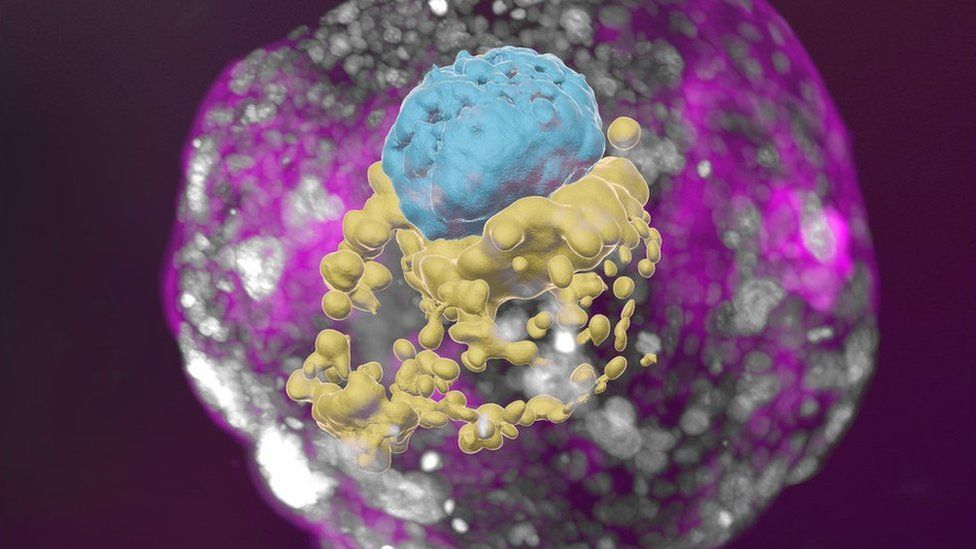Scientists have grown an entity that closely resembles an early human embryo, without using sperm, eggs or a womb.
The Weizmann Institute team say their “embryo model”, made using stem cells, looks like a textbook example of a real 14-day-old embryo.
It even released hormones that turned a pregnancy test positive in the lab.
The ambition for embryo models is to provide an ethical way of understanding the earliest moments of our lives.
The first weeks after a sperm fertilises an egg is a period of dramatic change – from a collection of indistinct cells to something that eventually becomes recognisable on a baby scan.
This crucial time is a major source of miscarriage and birth defects but poorly understood.
“It’s a black box and that’s not a cliché – our knowledge is very limited,” Prof Jacob Hanna, from the Weizmann Institute of Science, tells me.

